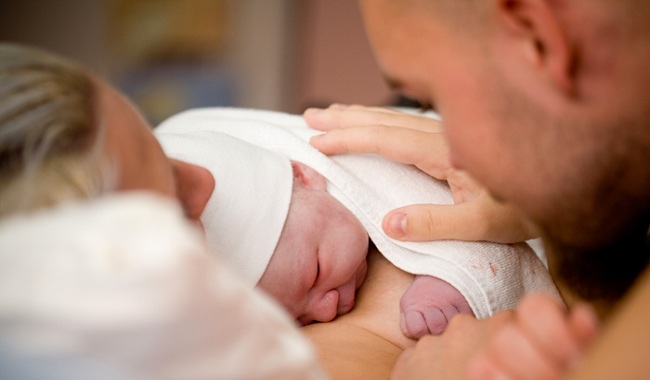
If you are in your last trimester of pregnancy then you must be eagerly awaiting for a sign of labour, but how would you know when and what is it?
Signs and symptoms of labour in pregnancy are many and if you pay heed to them, there will be sufficient time for you to get to the doctor/hospital. Your ability to gauge if labour has started depends a lot on how you perceive or respond to pain. It also depends on whether you’ve had a baby before, in which case you will probably have a fair idea of labour. If you feel unsure, it is always advisable to contact your doctor as he/she can tell a lot from the tone of your voice itself. You may even visit the doctor in order to get a proper assessment.

- Backache - Lower backache often accompanied by the feeling of cramps, similar to menstrual cramps; backaches which come and go indicate contractions
- Regular Contractions - During a contraction, the womb tightens and then relaxes. These help the cervix to dilate to make the passage for the baby bigger. During labour, the contractions become more regular, last longer and occur at increasingly shorter intervals. They also become stronger in intensity
- The mucus plug - A thick piece of mucus ‘plugs’ or blocks the opening of the uterus and protects your baby. As the cervix dilates, part or whole of it may be released. You will notice a brownish or blood-tinged mucus discharge. This means that labour is imminent or few days away. However, if you are losing more blood, it might be an indication that something is wrong
- Bloody show - A pink, brownish or red tinged mucus discharge in your sanitary pad or underwear indicates that your cervix is changing by dilating, thinning or moving forward. But this does not mean that your labour has started – labour might still be weeks or hours away
- Loose stools - The release of prostaglandins (which soften the cervix) can cause loose or soft stool. This usually means that labour is only a matter of days or hours
- Broken Water - The amniotic sac ruptures during the start of labour. You may feel a gush of fluid accompanied by a slow leaking or just the slow leaking without the gush. It’s best to consult your doctor in such a case as you might be very near labour. However, you’re in labour only if it’s accompanied by regular, severe contractions
- Head Fixing - The baby’s head begins to drop into position in your pelvis. The noticeable symptoms are that you breathe more deeply and also need to empty your bladder more frequently
Calling for Help
When you feel that you have gone in active labour you should not hesitate to make that call, whether to your doctor or your midwife. Even if it is a false alarm, it is quite natural for midwives to get such calls throughout the day. It is surprising to know that a midwife can ever identify your state by the tone of your voice, and so she will talk to you and ask you questions depending upon which she will tell you what exactly is happening.
She will call you in the hospital if you are planning to have your baby there and she is going to tell you whether you are in early labour or active labour. If it is early labour then she will ask you to come back when the labour is stringer and active. So, you should call on your midwife and doctor if your water breaks. Your baby is moving less than usual, you are bleeding from the vagina or if you have fever, headache and abdominal pain.
Often, one may undergo contractions and still not be in labour. In other cases, uncomfortable, intermittent contractions, also known as Braxton-Hicks contractions are confused with labour. The signs and symptoms of labour in pregnancy are not very conclusive about the time left for actual labour.
Every woman shows different symptoms but in actual the start of labour is indicated by a number of symptoms, all of which gear you towards the process of labour and delivery.
Read more articles on Labour and Delivery
For more related articles, download OnlymyHealth App.







